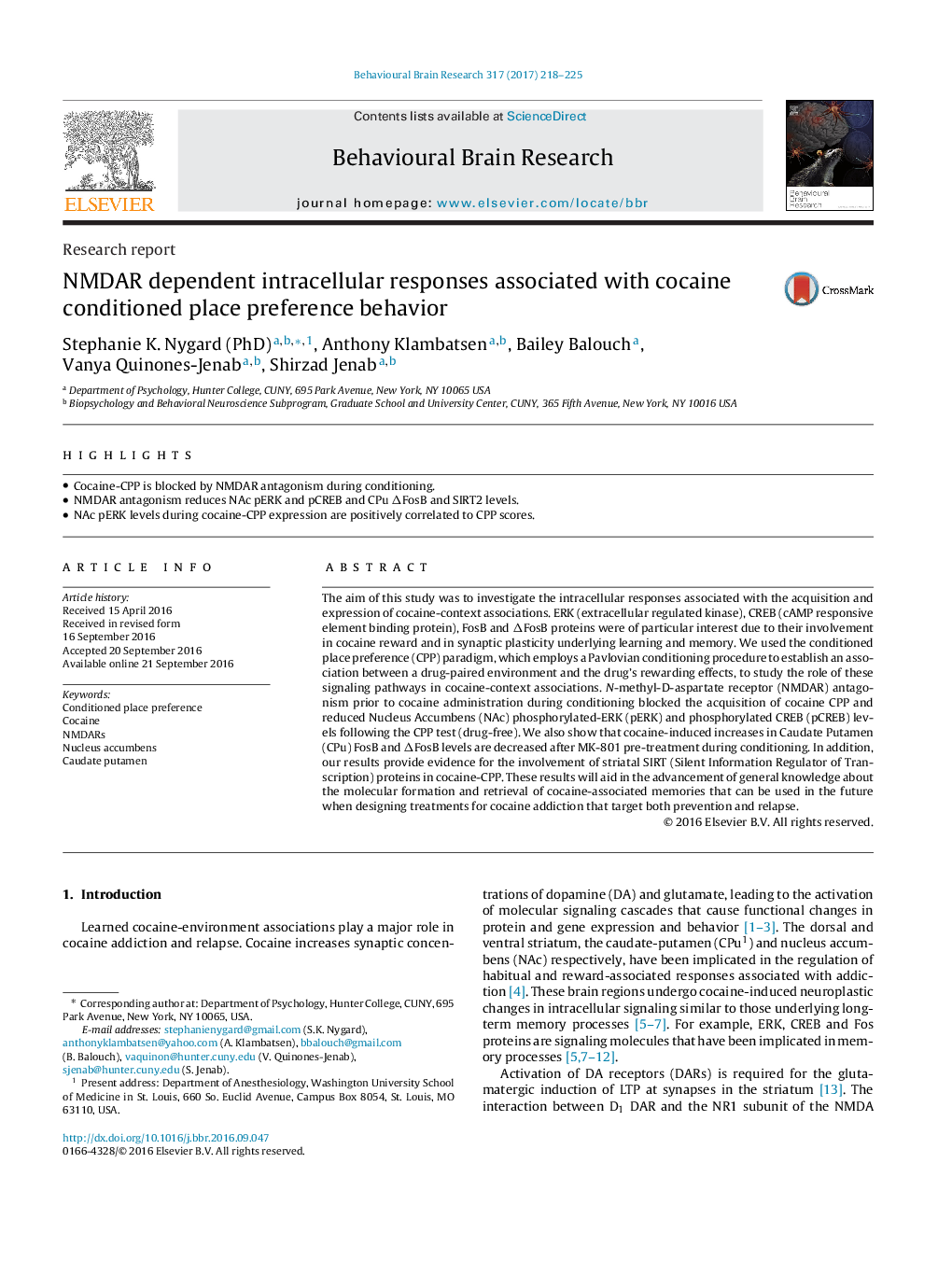| Article ID | Journal | Published Year | Pages | File Type |
|---|---|---|---|---|
| 4311963 | Behavioural Brain Research | 2017 | 8 Pages |
•Cocaine-CPP is blocked by NMDAR antagonism during conditioning.•NMDAR antagonism reduces NAc pERK and pCREB and CPu ΔFosB and SIRT2 levels.•NAc pERK levels during cocaine-CPP expression are positively correlated to CPP scores.
The aim of this study was to investigate the intracellular responses associated with the acquisition and expression of cocaine-context associations. ERK (extracellular regulated kinase), CREB (cAMP responsive element binding protein), FosB and ΔFosB proteins were of particular interest due to their involvement in cocaine reward and in synaptic plasticity underlying learning and memory. We used the conditioned place preference (CPP) paradigm, which employs a Pavlovian conditioning procedure to establish an association between a drug-paired environment and the drug’s rewarding effects, to study the role of these signaling pathways in cocaine-context associations. N-methyl-D-aspartate receptor (NMDAR) antagonism prior to cocaine administration during conditioning blocked the acquisition of cocaine CPP and reduced Nucleus Accumbens (NAc) phosphorylated-ERK (pERK) and phosphorylated CREB (pCREB) levels following the CPP test (drug-free). We also show that cocaine-induced increases in Caudate Putamen (CPu) FosB and ΔFosB levels are decreased after MK-801 pre-treatment during conditioning. In addition, our results provide evidence for the involvement of striatal SIRT (Silent Information Regulator of Transcription) proteins in cocaine-CPP. These results will aid in the advancement of general knowledge about the molecular formation and retrieval of cocaine-associated memories that can be used in the future when designing treatments for cocaine addiction that target both prevention and relapse.
